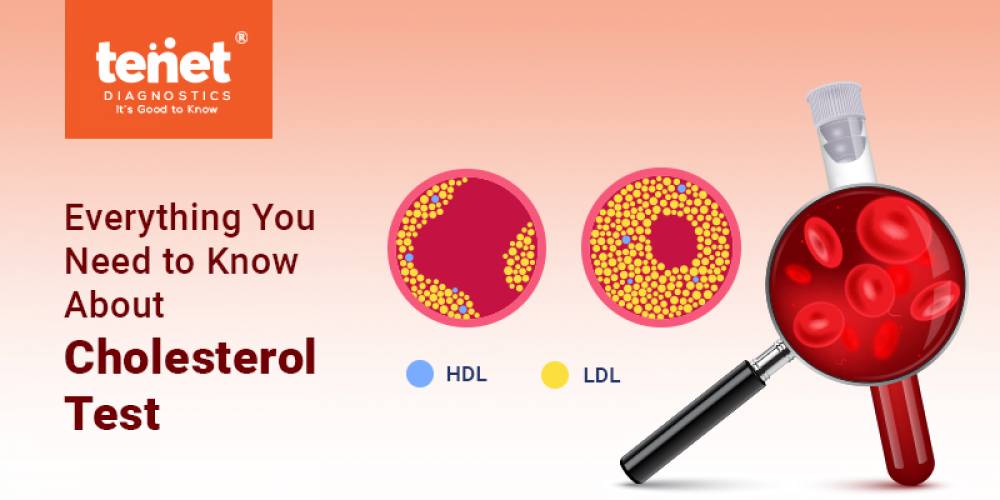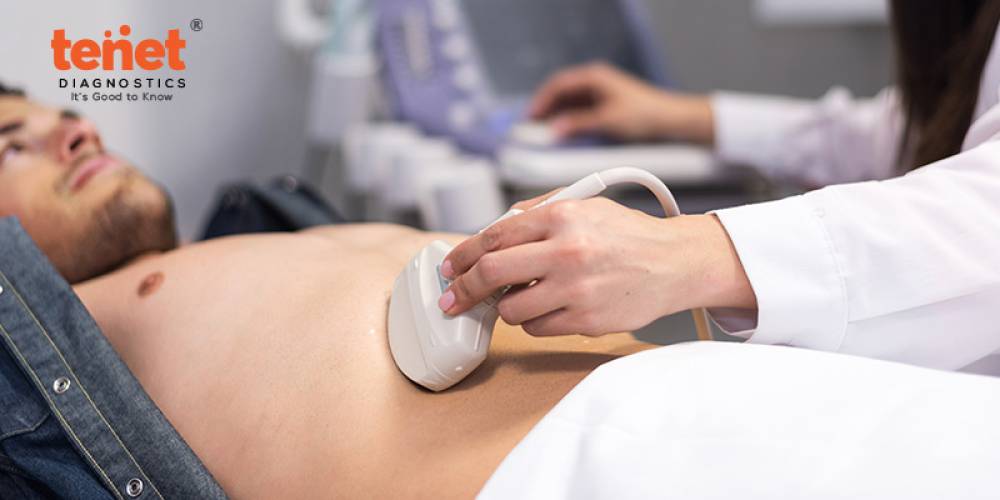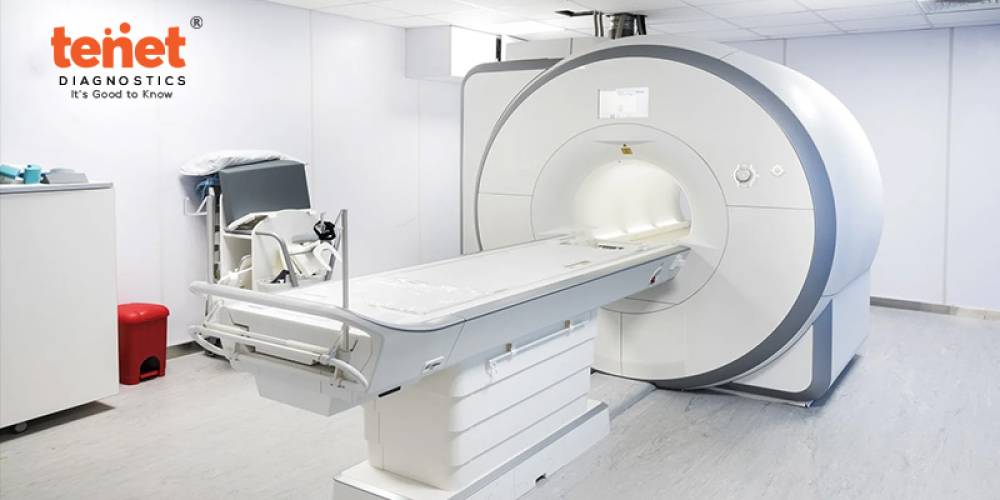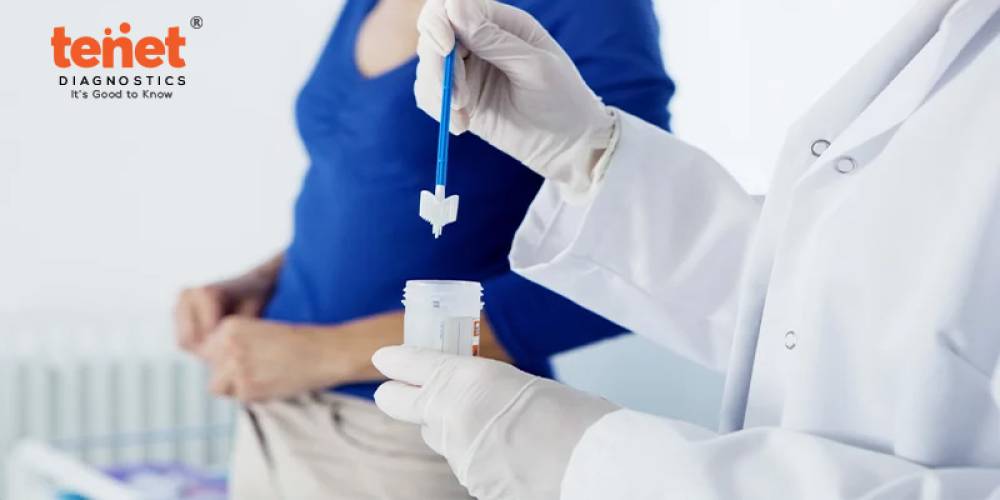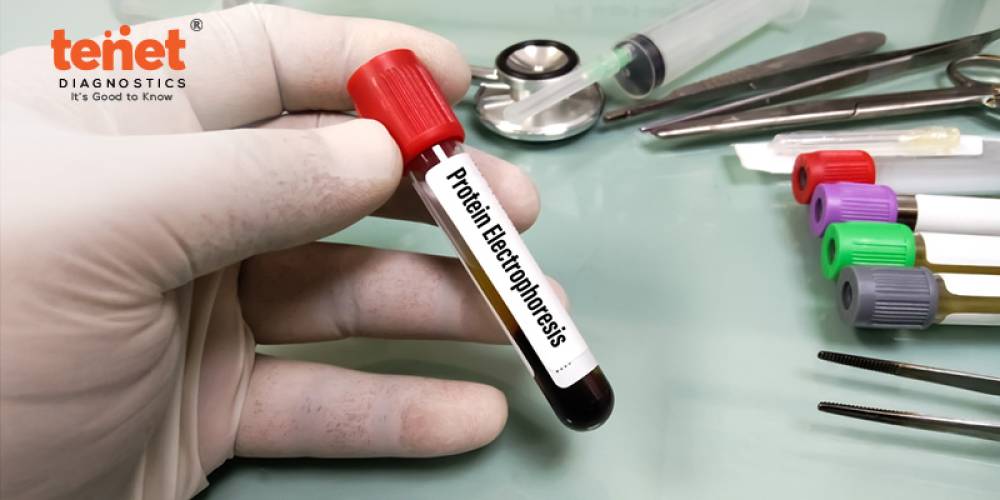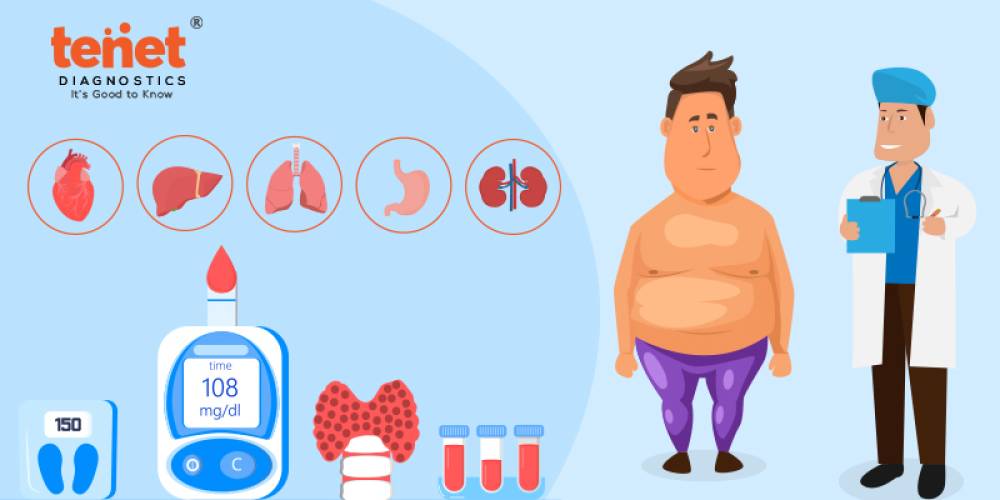To maintain good health, it's crucial to have your cholesterol levels under control. The two top most causes of mortality heart disease and stroke are more likely to occur in pateints with higher levels of cholesterol.
So one can control their healths by being aware of cholesterol levels. Lets find out about cholesterol testing and its significance
A lipid profile or cholesterol test is a blood test that examines the blood's triglyceride, cholesterol total, HDL ,LDL and VLDL levels. A cholesterol test is part of the lipid profile , it can be done separately , as per the treating doctor advice.
These findings give the doctor a quick snapshot of your blood's current state.
Our body needs cholesterol, a waxy compound, to produce hormones and absorb digest fats. Body makes all the cholesterol required, but you also consume cholesterol through meals like egg yolks and fatty meats. High blood cholesterol levels can cause artery plaque to build up, increasing your risk of heart disease and stroke. Checking your cholesterol levels is crucial because high blood cholesterol has no symptoms. these tests can aid in predicting your risk of developing heart disease and allow you to adopt early lifestyle adjustments that lower cholesterol and triglycerides
Purpose of Cholesterol Test

In most cases, high cholesterol has no visible effects. However, a blood cholesterol test is performed to ascertain whether your cholesterol is increased and to calculate your risk of heart attacks, heart disease, and blood vessel disorders.
HDL, or the good cholesterol, should be high, and LDL, or the bad cholesterol, should be low. A deviation from this is commonly a sign of many other health issues. The five types of fats in the lipid profile test are:
Total Cholesterol:
The sum of your LDL, VLDL, and HDL in your cholesterol levels is your total cholesterol levels.
Low-Density Lipoprotein (LDL) Cholesterol:
This is the "bad cholesterol" subtype of cholesterol. Your risk of cardiovascular disease may increase if it builds up in your blood vessels - LDL Cholesterol Direct Serum Test.
Very Low-Density Lipoprotein (VLDL) Cholesterol:
This particular form of cholesterol is typically only seen in minimal concentrations in fasting blood tests because it primarily originates from recently consumed food. However, this form of cholesterol may indicate faulty lipid metabolism if it increases in a fasting sample.
High-Density Lipoprotein (HDL) Cholesterol:
This kind of cholesterol, also referred to as "good cholesterol," prevents LDL from accumulating in your blood vessels - HDL Cholesterol Serum Test.
Triglycerides:
This kind of fat comes from the foods we eat. Blood triglyceride levels that are too high are linked to pancreatic inflammation and cardiovascular disease.
While these are the primary measurements in a typical lipid panel, more measures may be present in some test variants. For example, as part of a routine exam, your doctor may request a lipid profile, including a triglycerides test. This test may also be required to determine how well your treatment works if you are being treated for high cholesterol and triglycerides. Your age, sex, and risk of developing heart disease will determine how frequently you need to have a lipid profile test.
Preparation
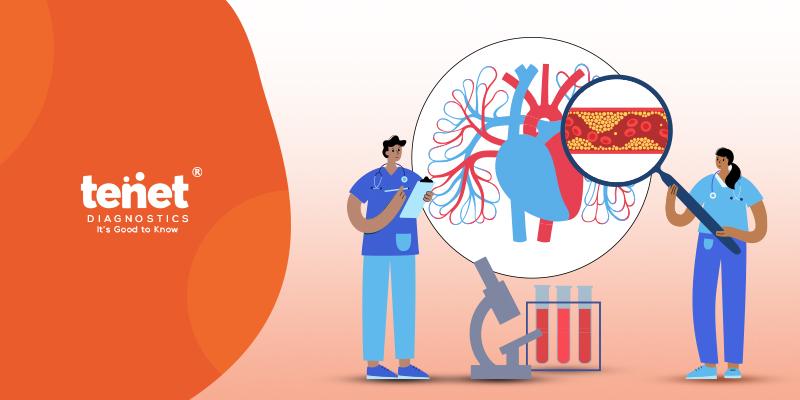
Your doctor may advise fasting before getting your cholesterol levels checked. If you must fast, you should go nine to twelve hours without eating or drinking anything besides water. Before the fasting cholesterol test, you should also tell the doctor about:
• Any signs or health issues you may be having
• Your family's history of heart disease
• All of the prescription drugs and dietary supplements you now take
The doctor might advise stop taking any medications a few days before the test if you use anything that could raise your cholesterol levels, such as birth control pills.
Cholesterol Test Procedure
During the test, a phlebotomist will insert a small needle to draw blood from a vein in your arm. First, a tourniquet (elastic band) is tightly fastened to the upper arm before drawing blood. Next, the patient is told to tighten their fist. This aids in the accumulation of blood in the veins, making it easier to collect blood. Before placing the needle in the vein, the skin is cleansed to avoid the passage of microorganisms. Following the needle insertion into the arm's vein, the vacutainer is used to collect the blood sample. The needle may sting slightly when it enters or exits your body. Usually, this takes less than five minutes.
Risks of High Cholesterol Levels
High levels of low-density cholesterol, smoking, being overweight, eating poorly, not often exercising, getting older, having hypertension, having a family history of early heart disease, already having heart disease or a history of heart attacks, diabetes, or prediabetes are all risk factors for high cholesterol levels.
Understanding the Results
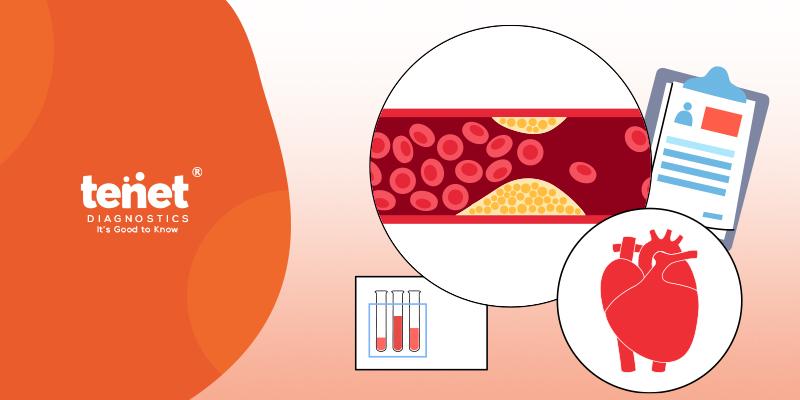
The standard unit of measurement for Cholestrol is milligrams per deciliter (mg/dL) of blood. if the treatment is necessary or not, it is determined using guidelines for normal and higher levels of cholesterol.
The typical adult total cholesterol normal range is as follows:
· Normal (Desirable): <200 mg/dL
· Borderline: 200 to 239 mg/dL
· High: >240 mg/dL
The ideal levels for total cholesterol should be less than 200mg/dL. Any reading above 240 mg/dL is regarded as high cholesterol and can be is associated with cardiovascular disease.
What is the Cholesterol test cost in Hyderabad?
The Cholesterol test price in Hyderabad is around INR 700. You can get the best cholesterol total serum test by searching for the "best diagnostic center near me."
The Final Word
A cholesterol test can analyze your blood's lipids and cholesterol levels to determine your risk of developing cardiovascular disease. At least every five years, healthy adults should check their cholesterol levels. More frequent testing is recommended for those with a family history of high cholesterol or at higher risk. If you have high cholesterol, your physician can work with you to develop a treatment plan to lower it to a healthy level. The typical treatment for high cholesterol includes a combination of dietary adjustments, increased activity, quitting smoking, and medication.
Remember that your cholesterol report only provides a broad recommendation. What is typical for you might not be acceptable to someone else. To develop a personalized plan for you, your doctor will consider your cholesterol readings and other risk factors.

